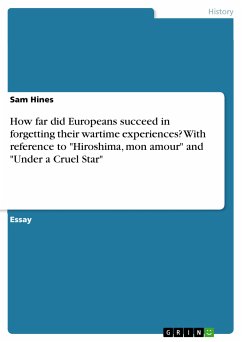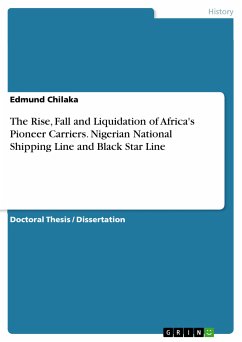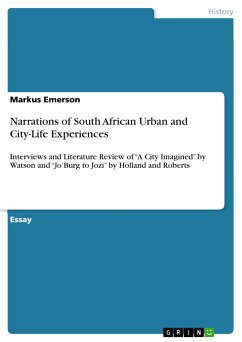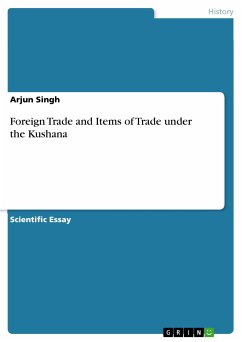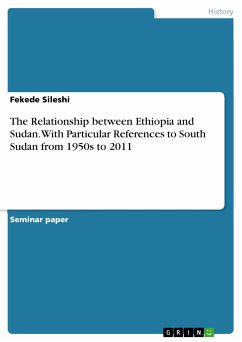Essay from the year 2019 in the subject History Europe - Other Countries - Ages of World Wars, grade: 68, Oxford University, language: English, abstract: This essay will seek to demonstrate that whether or not these experiences were forgotten hugely depended on the person and whether they actually wanted to wipe their past from existence: some simply could not forget, others refused to forget, and a number attempted to block out their memories in the pursuance of normality. Simultaneously, the use of national propaganda to reshape the 'truth' complicates the issue, adding an element of 'institutional memory' into people's wartime recollections. Due to this, 'memory' will be regarded as what people think they remember rather than what they actually experienced. The memories of the Second World War continue to produce a multitude of histories, films and biographies and this essay will focus on evidence from two key texts, namely the screenplay "Hiroshima, mon amour" by Marguerite Duras detailing the love affair of a man from Hiroshima and a woman from Nevers and the memoir "Under a Cruel Star" by Heda Margolius Kovály describing her suffering in Prague, to investigate the European success of forgetting the war before concluding that, for most survivors, the main problem was not the ability to remember but rather the inability to forget, especially in countries that were previously occupied by the Nazi regime. Divisions between neighbours, the continuance of Nazi anti-Semitic doctrines and the constant reminders of the destruction wrought by war made the events unforgettable and, thus, remembrance triumphed: the majority of Europeans were unsuccessful in forgetting their wartime experiences. Europeans, both Eastern and Western, encountered a plethora of different experiences during the war, some positive but many negative due to the brutality of Nazism and the Red Army. Hardly a single family living on war-torn land was left untouched by their violence, losing family members, homes and, in some cases, their minds.
Dieser Download kann aus rechtlichen Gründen nur mit Rechnungsadresse in A, B, BG, CY, CZ, D, DK, EW, E, FIN, F, GR, HR, H, IRL, I, LT, L, LR, M, NL, PL, P, R, S, SLO, SK ausgeliefert werden.

